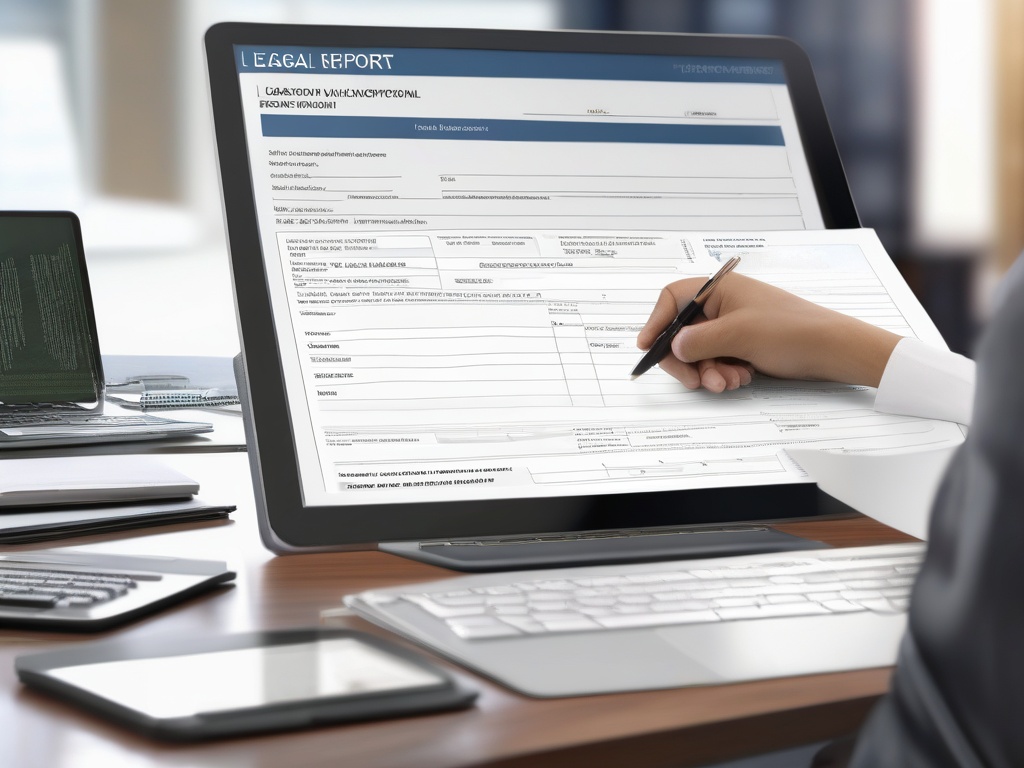
Unmasking the Truth: The Ultimate Strategy to Report Legal Violations Effectively
In a world where injustice can often go unnoticed or unchallenged, your willingness to report legal violations becomes a vital catalyst for change. Recognizing the importance of timely and accurate reporting is the first step towards protecting not only your rights but also the well-being of society. When you decide to step forward, you’re not just exposing a wrong; you’re actively participating in the maintenance of law and order, fostering transparency, and encouraging ethical conduct.
To ensure your report has maximum impact, it is crucial to adopt a methodical and well-informed strategy. Begin by meticulously collecting relevant evidence—documents, photographs, or credible witness accounts—that substantiate your claims. This foundation enhances the credibility of your report and safeguards against potential disputes. When communicating with authorities, clarity and precision are paramount; present your case logically, emphasizing facts over assumptions. Remember, the goal is to unmask the truth convincingly, so avoid emotional language and focus on factual accuracy. Comparing various reporting channels—such as direct law enforcement, regulatory agencies, or specialized whistleblower platforms—can significantly influence the outcome. Evaluate each option based on confidentiality, legal protections, and the likelihood of action, choosing the path that best aligns with your safety and the severity of the violation. The combination of thorough evidence, strategic communication, and careful channel selection transforms an individual effort into a powerful movement for justice.
Navigating the Legal Labyrinth: Expert Steps to Ensure Your Complaint Makes Impact
Successfully navigating the complex landscape of legal reporting requires more than just courage; it demands strategic insight and meticulous planning. When a violation occurs, your goal is not only to expose the misconduct but also to ensure that your efforts lead to tangible change. This means understanding the intricacies of legal procedures, recognizing the appropriate authorities, and crafting your complaint in a manner that maximizes its effectiveness. The path to impactful reporting is often fraught with procedural hurdles, but with expert guidance, you can transform your individual effort into a formidable force for justice.
One of the first steps in making a meaningful impact is to recognize the hierarchy of legal institutions that handle different types of violations. Not all violations are addressed equally; some require direct contact with specialized agencies, while others might be managed through local law enforcement. It is critical to identify the most appropriate authority that has jurisdiction over the specific issue you are reporting. For instance, environmental violations may fall under a regulatory agency rather than the police, and financial misconduct might require filing with a financial regulatory body. Choosing the right channel not only increases the likelihood of your complaint being acted upon swiftly but also enhances its credibility and legal weight. Moreover, understanding the procedural requirements of each channel, such as forms, deadlines, and evidence submission protocols, ensures your complaint is complete and compelling from the outset.
Once you have identified the appropriate reporting channels, the next challenge lies in crafting your complaint for maximum impact. This involves more than just presenting facts; it requires a strategic presentation that emphasizes clarity, precision, and legal robustness. Gathering irrefutable evidence and organizing it systematically is paramount. Your documentation should include verifiable records, timestamps, and credible witness testimonies that substantiate your claims. When drafting your report, avoid emotional language or assumptions that could weaken your position. Instead, focus on factual accuracy and logical coherence, ensuring that your narrative aligns with legal standards. Additionally, familiarize yourself with legal protections available to whistleblowers, such as confidentiality clauses and anti-retaliation laws. These safeguards empower you to report without fear of reprisal, and understanding them can be instrumental in maintaining your safety and integrity throughout the process.
Empowering Whistleblowers: Proven Techniques to Secure Justice and Hold Offenders Accountable
In the fight against corruption and misconduct, your role as a whistleblower is pivotal. The first step toward effective advocacy is understanding how to wield your voice responsibly and strategically. It’s not just about exposing wrongdoing but doing so in a manner that commands attention and compels action. This involves crafting your report with precision, ensuring that every piece of evidence is meticulously documented and presented in a way that underscores the gravity of the violation. Leveraging the right channels, whether through dedicated whistleblower platforms or specialized authorities, can significantly amplify your impact. Remember, your courage combined with a well-formulated approach can transform an individual act of bravery into a formidable force for systemic change.
At the core of successful reporting lies irrefutable evidence. It’s crucial to gather and organize your findings with clarity, ensuring they withstand scrutiny. Detailed records, timestamped documents, and credible witness statements serve as the backbone of a compelling complaint. Beyond evidence, understanding the legal protections available to whistleblowers is essential. Laws that shield you from retaliation and guarantee confidentiality are not just formalities—they are your armor. Fully comprehending these safeguards enables you to report with confidence, knowing that your rights are protected and that the law supports your pursuit of justice. This dual focus on robust evidence and legal security creates a formidable foundation, empowering you to hold offenders accountable without fear or hesitation.
